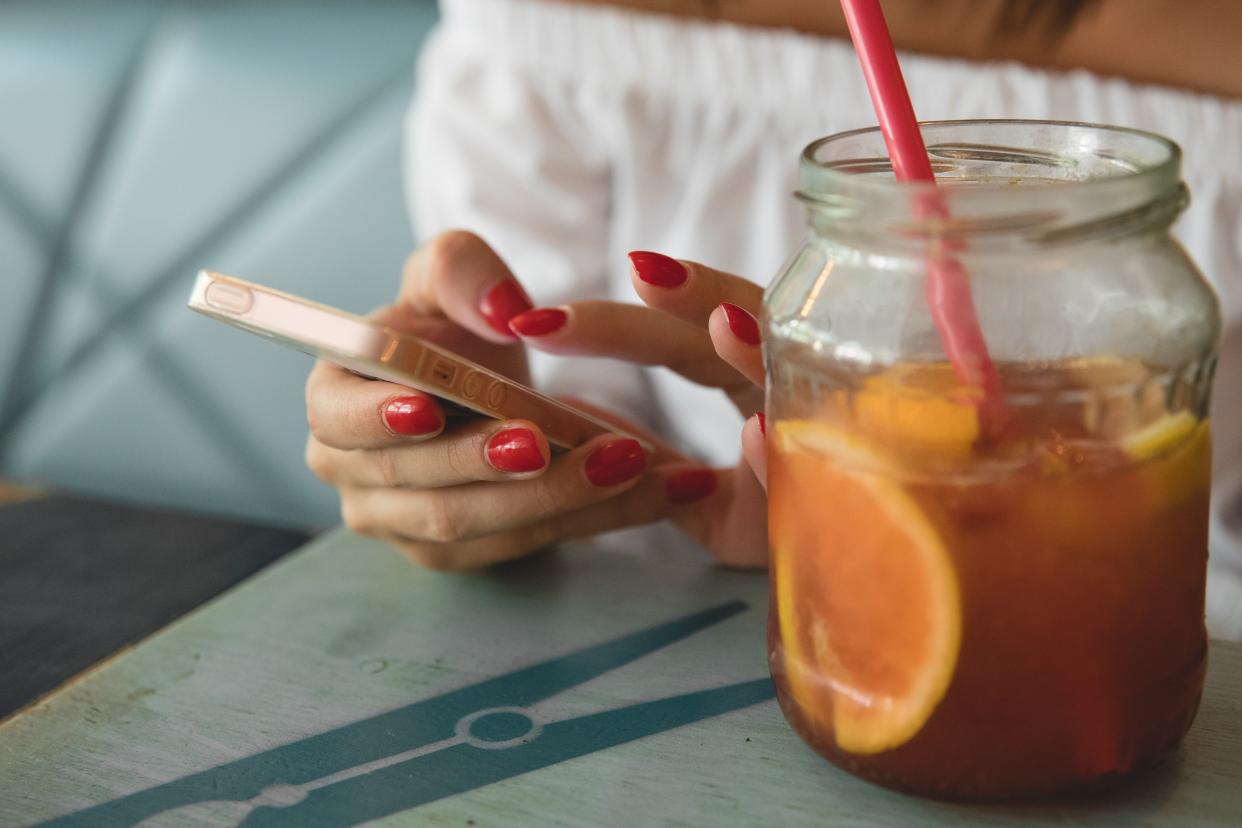Here’s why you shouldn’t feel guilty about unfriending people on social media
We have an idea that might sound a bit radical, but hear us out: There are plenty of reasons why you shouldn’t feel guilty about unfriending or unfollowing people on social media, no matter how close to them you are in real life. Yes, it sounds totally bonkers, because you’re likely digitally connected to nearly every person in your life (from your boss to your grandparents), so unfriending friends or family on social media can feel like the equivalent to a digital slap in the face.
And while it might seem like you’re basically announcing to that person (and all of their friends) that you simply don’t want to be a part of their digital presence anymore — or worse, that you truly dislike them and want to cut them out of your life — we actually think there are some seriously good reasons to unfriend or unfollow certain people altogether.
Most of us spend many of our waking hours glued to our phones, and all that time spent on social media can seriously fuck with your mental health. For all the ways that social media allows you to remain connected to the people in your world, it also becomes that much easier to get annoyed with people that you love IRL.
We know that unfriending or unfollowing someone can present some seriously awkward moments the next time you have to see them in person (like, say, your narrow-minded aunt at Thanksgiving or your non-stop posting cubemate in the next staff meeting), but we are all for limiting your exposure to things that don’t bring you joy or that downright stress you out, even when it feels uncomfortable to be the driving force behind a digital breakup.
And with the pervasive nature of news, both real and “fake,” it can feel as if we’re subjected to not only what is going on in the world (which is somehow usually devastating, maddening, and frightening all at once), but what all of our acquaintances think about said news. It can feel like an endless loop of commentary and noise that, frankly, no one actually needs.
While we love that social media gives people a platform to express their thoughts and opinions, that doesn’t mean you have to listen to them all the time. In a 2016 The New York Times article called “And Now, Thee I Unfollow,” several people detailed exactly why they enjoy hitting that delete button. Chicago-based non-profit worker Maggie Cassidy said,
“I think that social media is so pervasive in our everyday life that it can be easy to forget that it is entirely optional. You can get into a cycle of being irritated and not remember that you don’t have to participate.”
And though the act of deleting someone, whether it’s someone you had one class with in college or your second cousin, is rarely as stealth as you hope it’ll be (unfortunately, there’s a good chance they’ll eventually notice), it’s still worth it to limit the noise in your feeds, especially when it’s causing you stress and anguish to see someone’s posts.
Politics aside, you’re also totally entitled to delete someone even if they’re not sharing the latest fake news posts. We all know the people who incessantly update their status, check in somewhere every time they leave the house, or snap a selfie multiple times a day. It can be jarring to see that someone’s online persona is at odds with the person you know in real life.
A crucial part of self-care is acknowledging that it’s okay to shield yourself from seeing a constant flood of posts that make you feel anxious or insecure, whether that’s from negative posts about current events or positive posts about how great someone’s life seems to be.
Because, let’s be real: Social media is stressing us the hell out.
Multiple recent studies show a direct link between mental health and social media use, with higher instances of depression and lower self-esteem being reported in recent years. In fact, this phenomenon has been called “Facebook depression,” and it’s proven that comparing yourself to your Facebook friends is detrimental to your mental health.
So even if it feels a bit dramatic, it’s really okay to unfriend someone if it’s the only way you can keep your peace. Social media gives people a front row seat to your innermost thoughts and feelings, depending on how much you choose to share. And the reverse is true, which means you may end up seeing way more than you bargained for from those chronic oversharers in your life.
Deleting someone from your feeds doesn’t mean you need to delete them from your life. And the truth is, most of your digital friends actually aren’t your real friends, despite how connected you may feel.
It may feel great to post something and watch the Likes roll in from people you haven’t actually seen or talked to in years, but the truth is that real friendships exist away from your screens, and they will still be there long after you sign off. Hitting that unfriend button might just be a digital blessing in disguise for your relationship, and it’s fully okay to put your needs first, even at the risk of losing some of that sweet, sweet instant validation.


